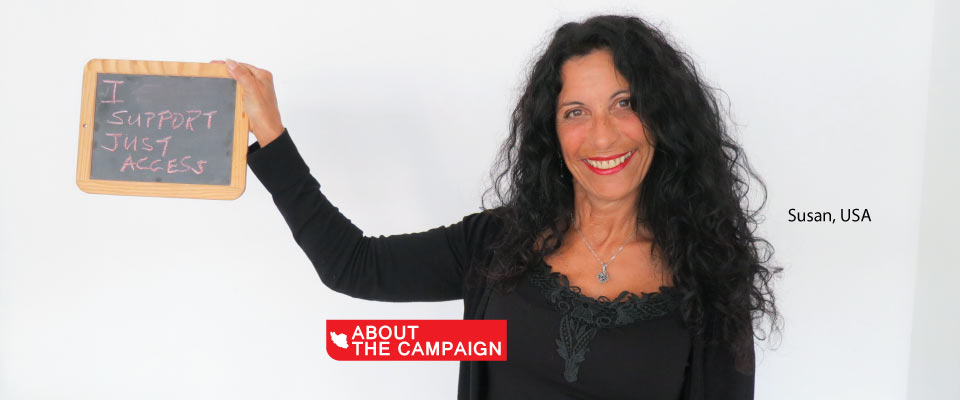
JUST ACCESS is an international campaign to ensure access to medication, humanitarian goods, and other non-sanctioned items by people living in Iran. In the following statement, we outline the situation in Iran as related to economic sanctions and present our request for alleviating some of the burden falling on Iranian families. This current campaign focuses on the unintended effects of economic sanctions on people living in Iran. Our objective is for the European Commission to create a payment channel allowing the purchase of non-sanctioned items, such as medication and humanitarian goods.
The brunt of suffering due to sanctions is falling on those who are most vulnerable in society. Many suffering from cancer and chronic diseases are left untreated. Some of this can be alleviated by allowing international money transfers.
In addition, ensuring that legal channels are open should put pressure on the Iranian government to reduce shortages. This is especially true for medication and medical procedures which have become prohibitively expensive for many.
Economic sanctions in their present form hurt potential forces for change in Iran. Because they are so broad, economic sanctions take the focus off the repression of civil society and put it on the economic harm inflicted by the West.
Iran faces many different types of sanctions:
- Sanctions targeting human rights abusers, which are intended to limit their capacity to engage in international trade.
- Sanctions against the military, which are designed to limit the capacity of Iran’s Revolutionary Guards.
- Sanctions designed to prevent Iran from weaponizing its nuclear program.
- Blanket economic sanctions, which are less targeted and affect all of society.
The way those final sanctions are implemented is causing much pain and suffering.
Assign a Payment Channel for Medication, Humanitarian Needs, and Non-Sanctioned Items
In the words of the US State Department, Iran is facing “unprecedented sanctions.” Iranian scholars affiliated with state institutions can no longer publish in scientific journals. Regulations prevent international banking. The value of domestic currency has plunged, while the cost of living has soared.
Fifty percent of respondents to a recent Gallop Poll reported having insufficient money for food and shelter. Indicators show that as the economy falters, Iran’s women are losing hard-won gains in education and are being encouraged to marry younger. Over the past eight years, radiology costs have increased 500 to 800 percent.
In addition, many are suffering and dying because of lack of access to needed medication. In many cases, this access has been cut because banks are no longer willing to risk doing business with Iran.
The sanctions are reportedly to prevent the country from acquiring the means to weaponize their nuclear program. They have effectively isolated Iran from the international community. In July of 2013, sanctions law went a step further, criminalizing significant transactions in rials: Iran’s currency. [Read the full statement here…]

